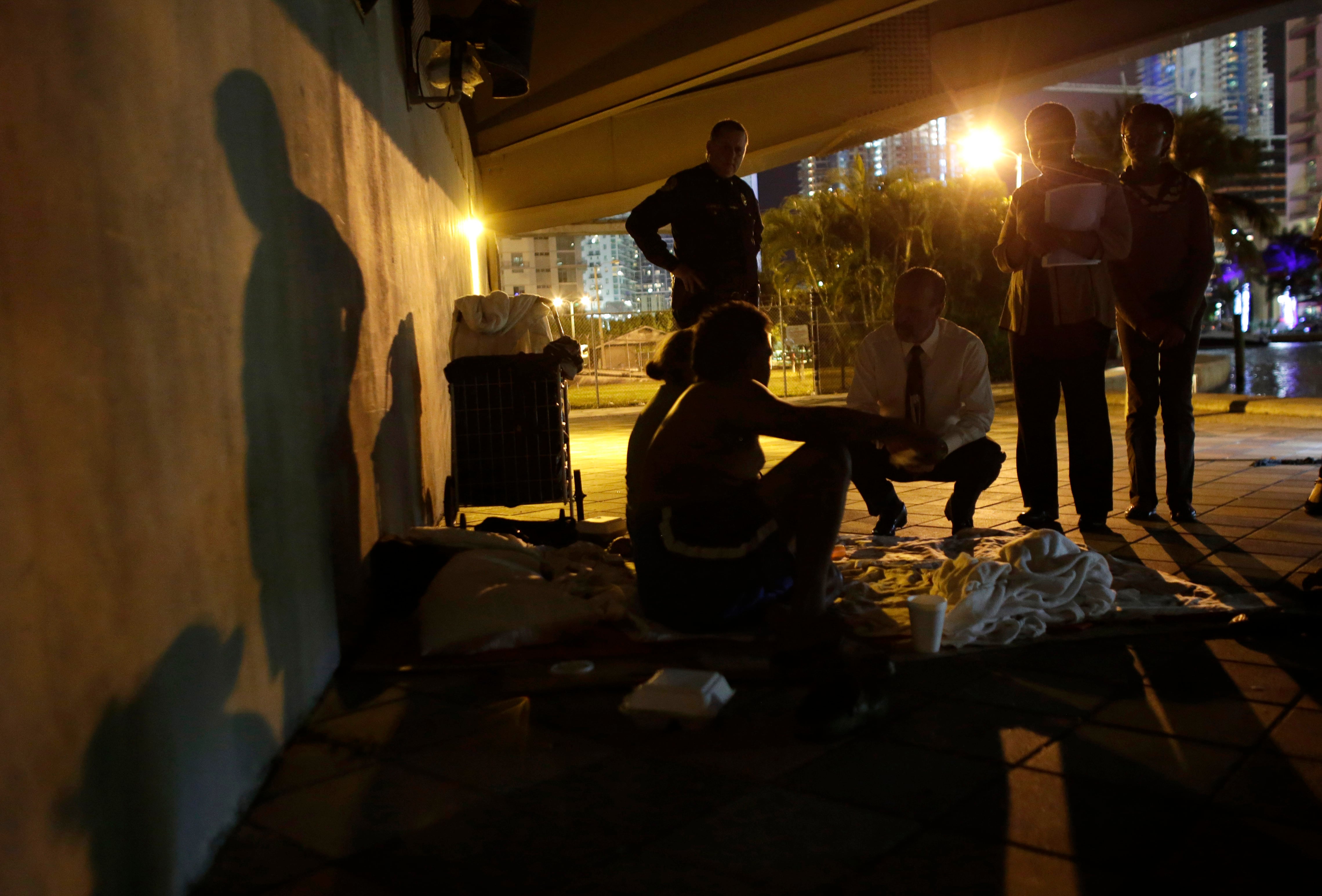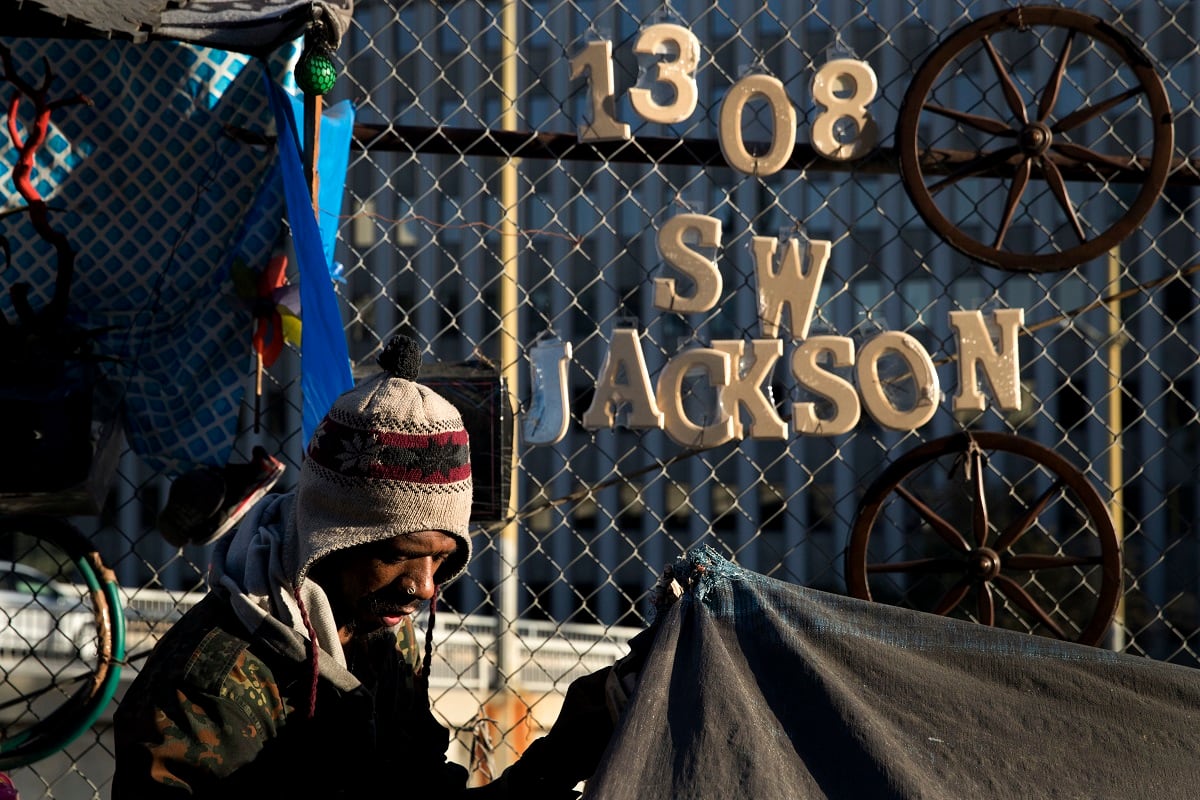Despite positive news on the rate of veterans homelessness last year, advocates worry that continuing progress on the goal of ending the problem nationwide will only get more problematic in coming years.
“The numbers are good, they continue to be positive, but they could be better,” said Kathryn Monet, executive director of the National Coalition for Homeless Veterans, which held its annual conference in Washington, D.C. last week. “I think we could be going farther than where we are now.”
Last fall, The Department of Housing and Urban Development estimated about 38,000 veterans across the country are without stable housing on any given night, a drop of about 5 percent from 2017 levels and a reduction of almost 50 percent from 2010 estimates.
RELATED

At the NCHV conference, leaders from VA and HUD praised those estimates as a sign that the federal government’s efforts on the issue remain on track, after a worrisome rise in the homeless veterans population from 2016 to 2017.
In recent years, three states — Delaware, Connecticut and Virginia — and 71 cities have announced a functional end to homelessness in their communities. The distinction does not mean that all veterans will avoid housing instability, but instead that local authorities have the systems and resources to quickly help those who do end up in financial trouble.
But they also acknowledged that the work to come on helping the remaining destitute veterans presents a host of challenges.
VA Secretary Robert Wilkie said many of the resources already provided by the federal government in recent years cannot or will not help the remaining homeless veterans, because of their unique challenges.
“I recently was in west Los Angeles, where about 10 percent of the (nation’s) homeless veterans population lives,” he told the crowd. “I watched at dusk cars come in to that wonderful, wonderful facility, but veterans did not get out of the cars.
“I was told that was because they all had jobs. They were contributing to the tax base and the prosperity of America’s second-largest city. But because of government policies, there was no place for them to afford a decent (home).”
HUD Secretary Ben Carson promised the crowd that his administration is looking into ways to create more affordable housing nationwide, especially in rural and under-served areas.
Conference sessions focused on racial challenges in available housing programs and issues of recidivism among veterans who have received assistance. Monet said her leadership is focused on ensuring that enough resources exist to help women veterans with families — a traditionally under-served group — as well as older veterans.
“We have a graying population of veterans, and we need to start examining the partnerships we need to make to respond to that,” she said. “Our question now is what are we going to do in the next 10 years to combat the problem.”
Monet said that’s where the issue of civic enthusiasm also becomes an issue.
RELATED

In 2010, then-President Barack Obama and VA Secretary Eric Shinkseki made a public push to end homelessness among veterans by the start of 2016. The effort ultimately fell short, but advocates praised the bold goal as a driving force and rallying point for a host of previously unconnected charity efforts.
Monet worries that some of that public focus on the issue is lacking today, despite strong words of support from leaders like Carson and Wilkie. This year’s conference focused on using data to better respond to local needs and challenges, in an effort to keep up the pace of getting veterans into stable housing.
“After almost 10 years, we have a deep pocket of best practices that communities can follow,” she said. “So we need to be looking at that data, picking things that the evidence shows are working, and keep asking what can we do better.”
HUD’s next estimate of the veterans homeless population is due out in the fall. Carson did not give a preliminary view of that calculation, but called last year’s numbers encouraging.
“It is our mission to make sure that every veteran has a safe, quality, affordable place to call home,” he told the NCHV crowd. “We still have a lot of work ahead of us.”
Leo covers Congress, Veterans Affairs and the White House for Military Times. He has covered Washington, D.C. since 2004, focusing on military personnel and veterans policies. His work has earned numerous honors, including a 2009 Polk award, a 2010 National Headliner Award, the IAVA Leadership in Journalism award and the VFW News Media award.




